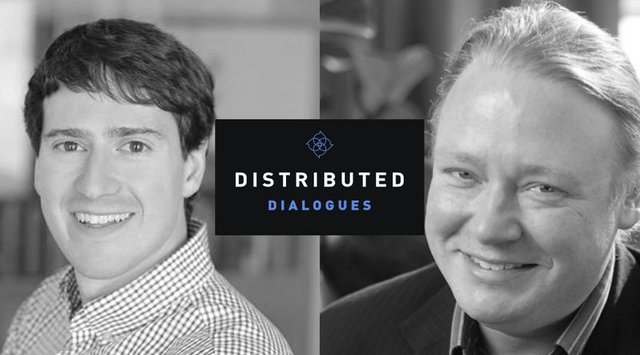Distributed Dialogues: Blockchain’s Better Side

The fact that great responsibility accompanies great power has become crystal clear in the blockchain world. While blockchains are most commonly connected with commerce, the potential impact of distributed ledgers is being discovered in fresh sectors daily.
In the most recent episode of the Distributed Dialogues podcast, a collaborative show between the Let’s Talk Bitcoin Network and Distributed Magazine, blockchain’s better side was on display. The show explored three different perspectives on how the technology is being used, not just to raise crypto value, but to help humanity rise up.
Blockchains for Human Rights
Alex Gladstein, chief strategy officer at the Human Rights Foundation (HRF), explained that organization’s optimism about blockchain technology. HRF is a nonpartisan, nonprofit organization that promotes and protects human rights globally, with a focus on closed societies.
According to Gladstein in his interview with the show’s co-host Rick Lewis, about 90 countries, with a total population of about 4 billion people, currently lack the checks and balances that a more open society would have.
Gladstein believes that decentralized models such as blockchains and cryptocurrencies can make a world of difference for this large population whose rights are routinely violated. It’s part of a nascent field he calls “demtech,” short for “democracy tech,” and its development comes with an unexpected bonus.
“Demtech would be getting power back in the hands of the people,” he said. “It’s not really out there yet … but it’s an opportunity, and what’s cool is you can probably make a lot of money in this space. When you talk about decentralized money networks, decentralized VPNs, censorship-resistant money and communications, I think there’s going to be huge demand for that …There’s tremendous opportunity to both impact the planet and make a lot of money, which is kind of a first for the human rights space.”
Brian Behlendorf on Governance
Brian Behlendorf is the executive director of Hyperledger, the umbrella project of open-source blockchains which is striving to support collaborative development for blockchain technology. As a primary developer of the Apache Web server, Behlendorf’s influence has spanned the web for decades.
His role as a founder of the Apache Software Foundation has also established him as a long-time advocate of the open-software community. Behlendorf strikes a balance between the responsibilities that should be designated to machine and to man, in his interview with Distributed Dialogues co-host Dave Hollerith.
“We can’t give up the need to find ways, as humans, to make decisions together,” Behlendorf pointed out. “And so, I think the more of governance, the more of business processes that we can make algorithmic and auditable using blockchain technology, in addition to lots of others, the better off we’ll be, because the more fair, potentially, we’ll have the application of those rules to society.
“But we still need human governance at the end of the day,” he continued, “and even the public blockchain ledgers have that in the form of the leaders of those projects, and the developers and the miners, who collectively make a decision, ‘Let’s bail out the DAO, but let’s not bail out the Parity Wallet hack victims.’ So these things happen, right? These human governance mechanisms happen. We can either embrace that and find ways to do that right or pretend that doesn’t exist and end up with Lord of the Flies.”
Flux
Blake Burris and Kylen McClintock of Flux, a new protocol for facilitating environmental data, spoke with segment host Tatiana Moroz. Flux is a self-described “proof of impact” play which dedicates 10 percent of its allocations to impact projects to scale the protocol.
According to the Flux website, it is deploying a sensor data network targeted at improving marketplaces and supply chains for agriculture, livestock and aquaculture. Its success, or proof of impact, will be measured by its ability to create partnerships that end desertification, stabilize crisis zones, integrate with micro-finance programs and help farmers increase their profitability.
Here, blockchains prove beneficial, courtesy of the Flux token (currently in pre-sale). “The token really comes in to incentivize data contribution,” McClintock explained
“Currently there’s expert growers around the world, or organizations that have specific data in a certain realm like carbon data, methane data, satellite imagery data, but right now there’s not a global standard way to contribute to that and get rewarded for that contribution. [It’s] another way of actually creating a custom perception engine, basically a custom machine learning model to be able to take the relevant data capsules that an organization, or government or academic research needs to find those insights.”
“It’s really about those insights that can be derived from that mass data set, and paying on a pro rata basis back to those who contributed that data,” added Burris.
Read original article http://blog.tekyboy.com/?p=738
Chic article. I learned a lot of new things. I signed up and voted. I will be glad to mutual subscription))))